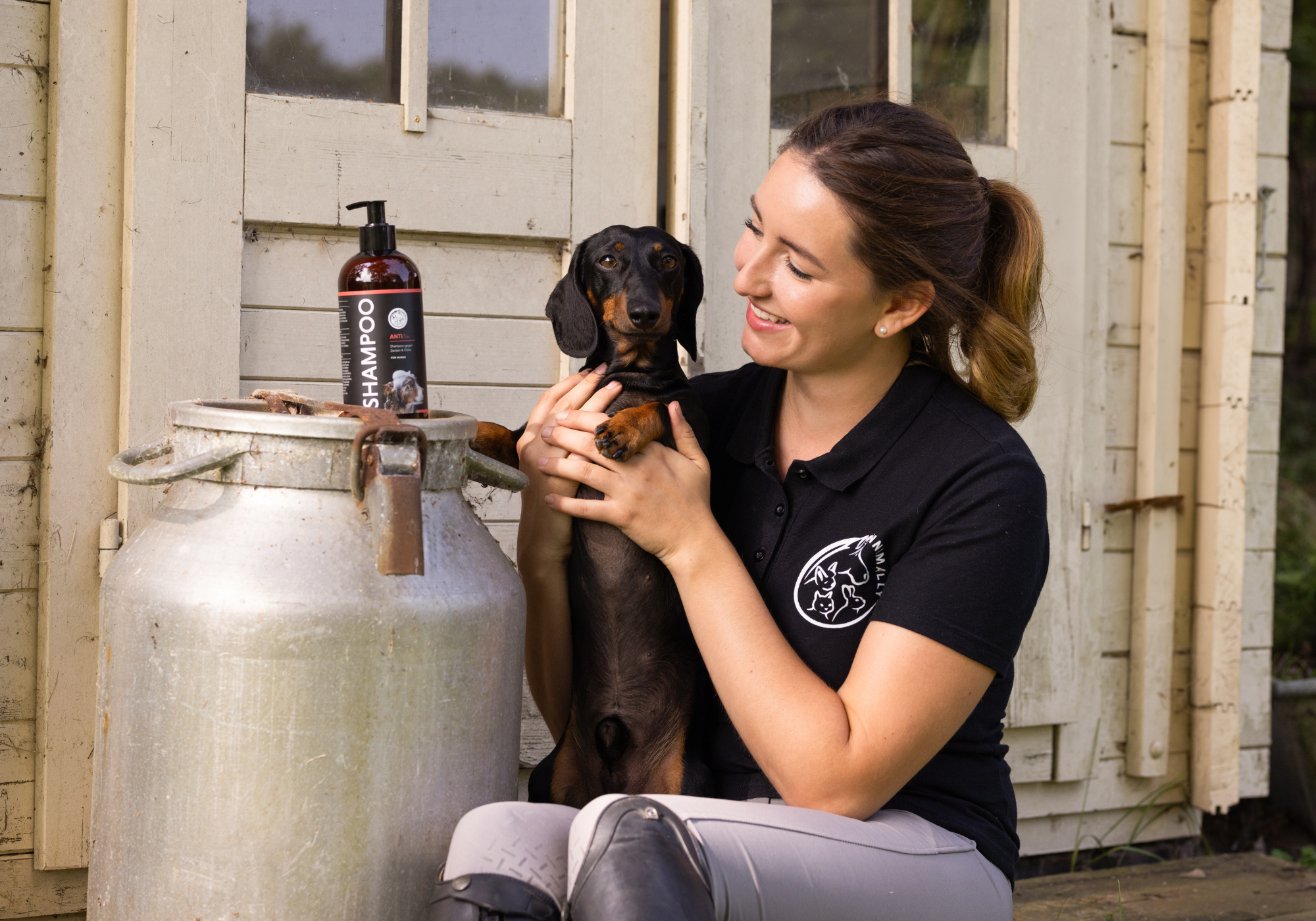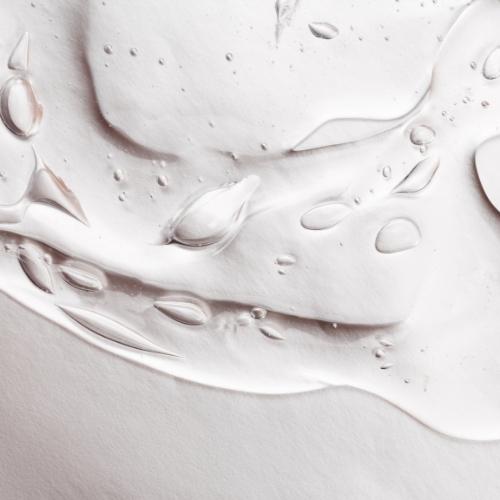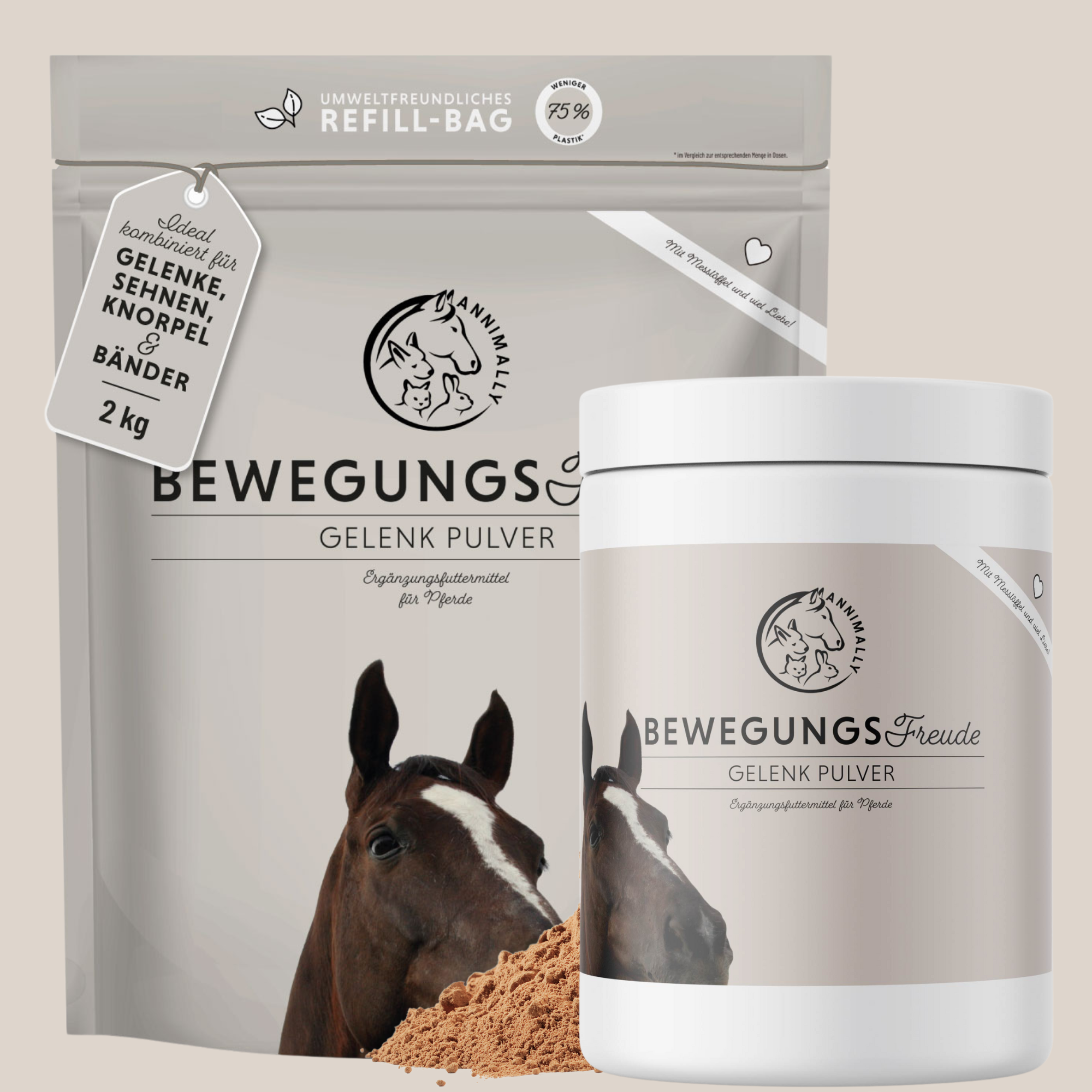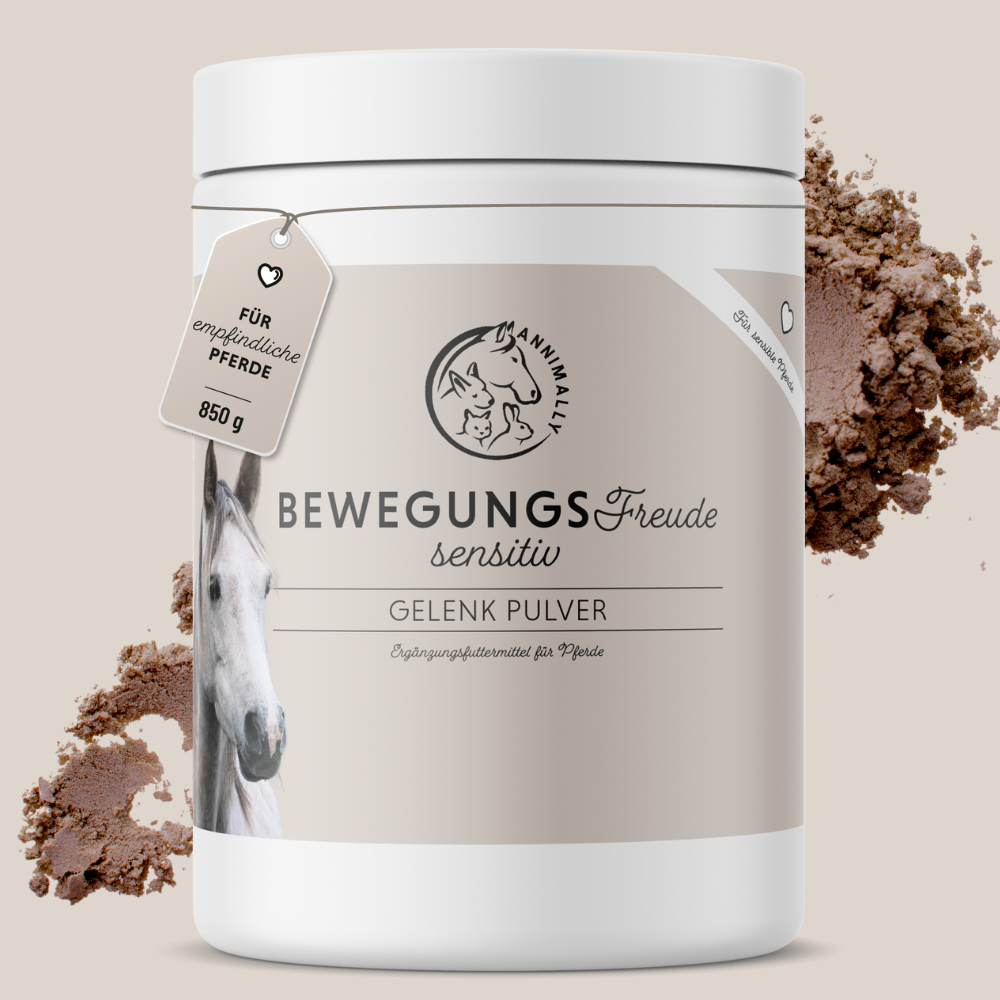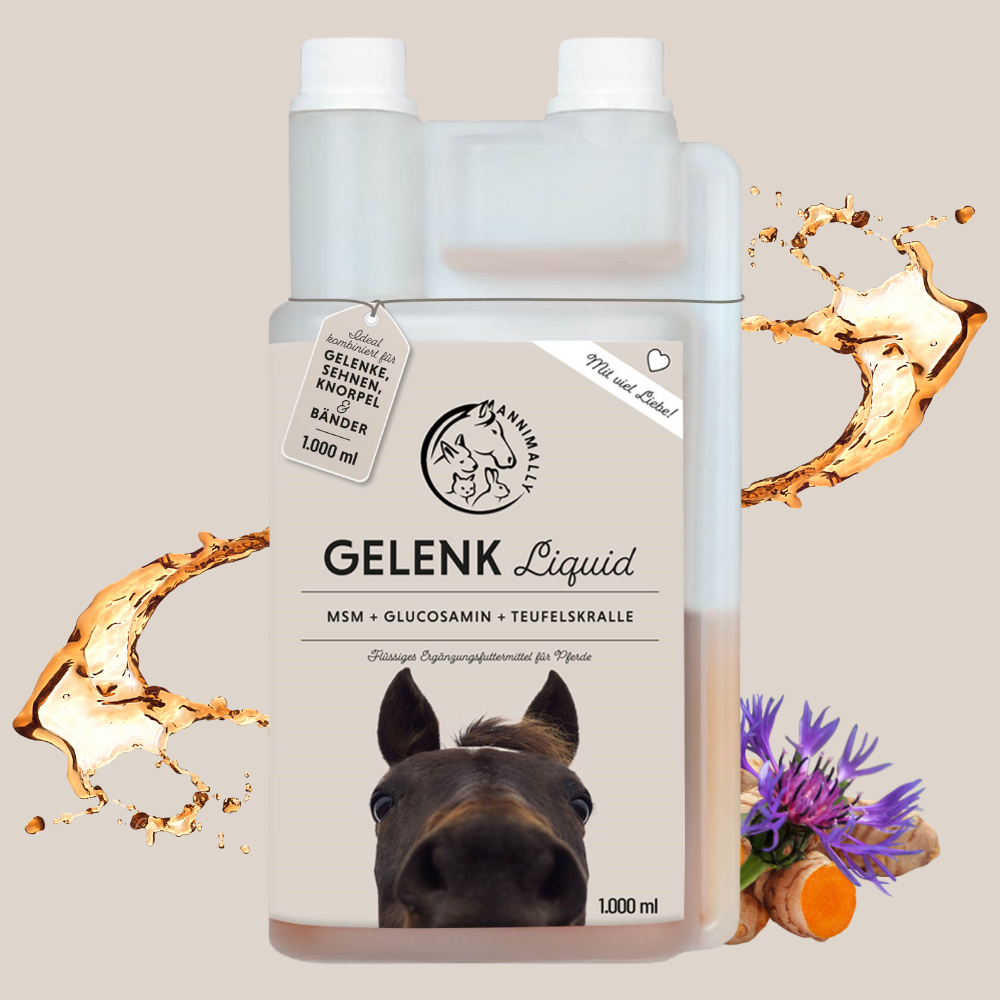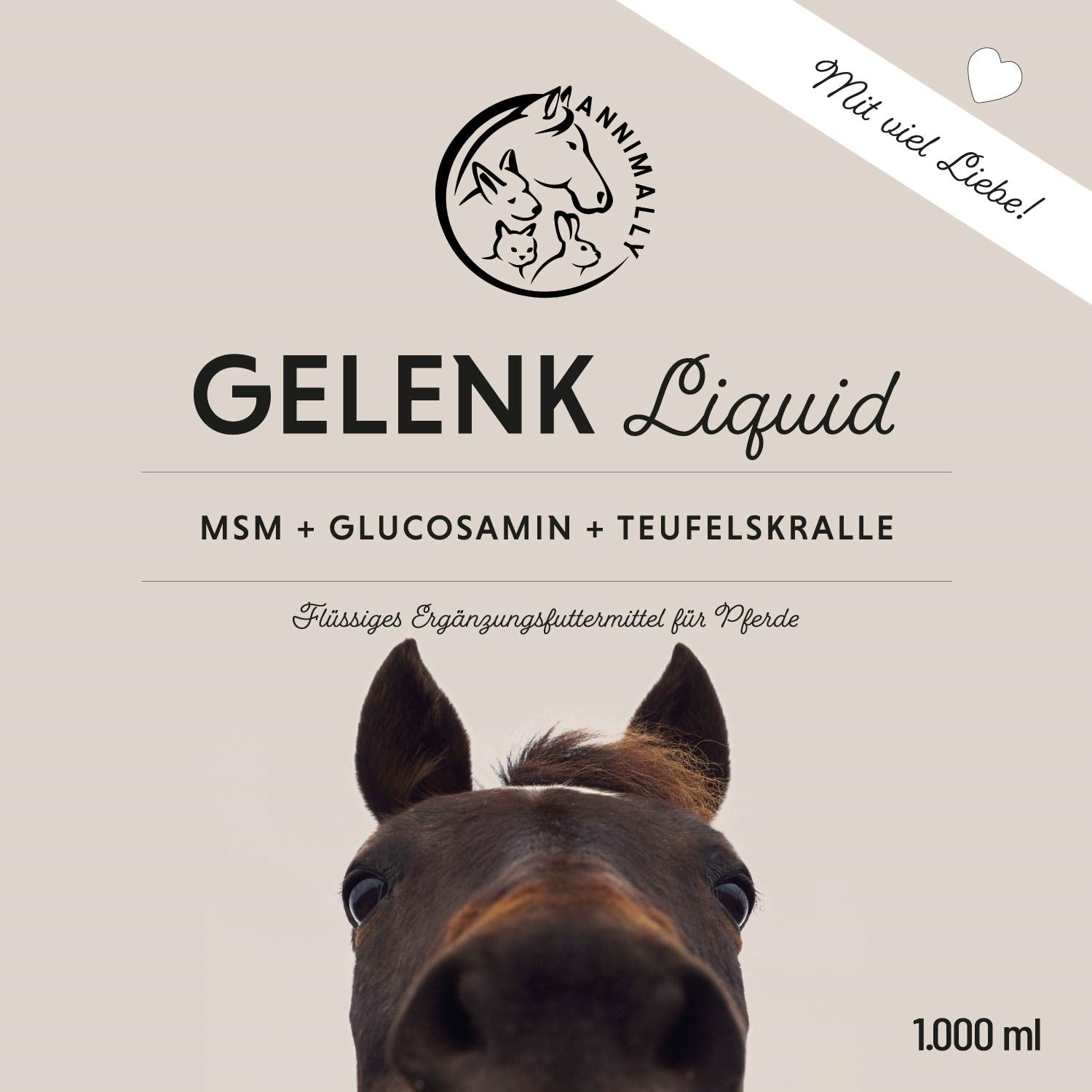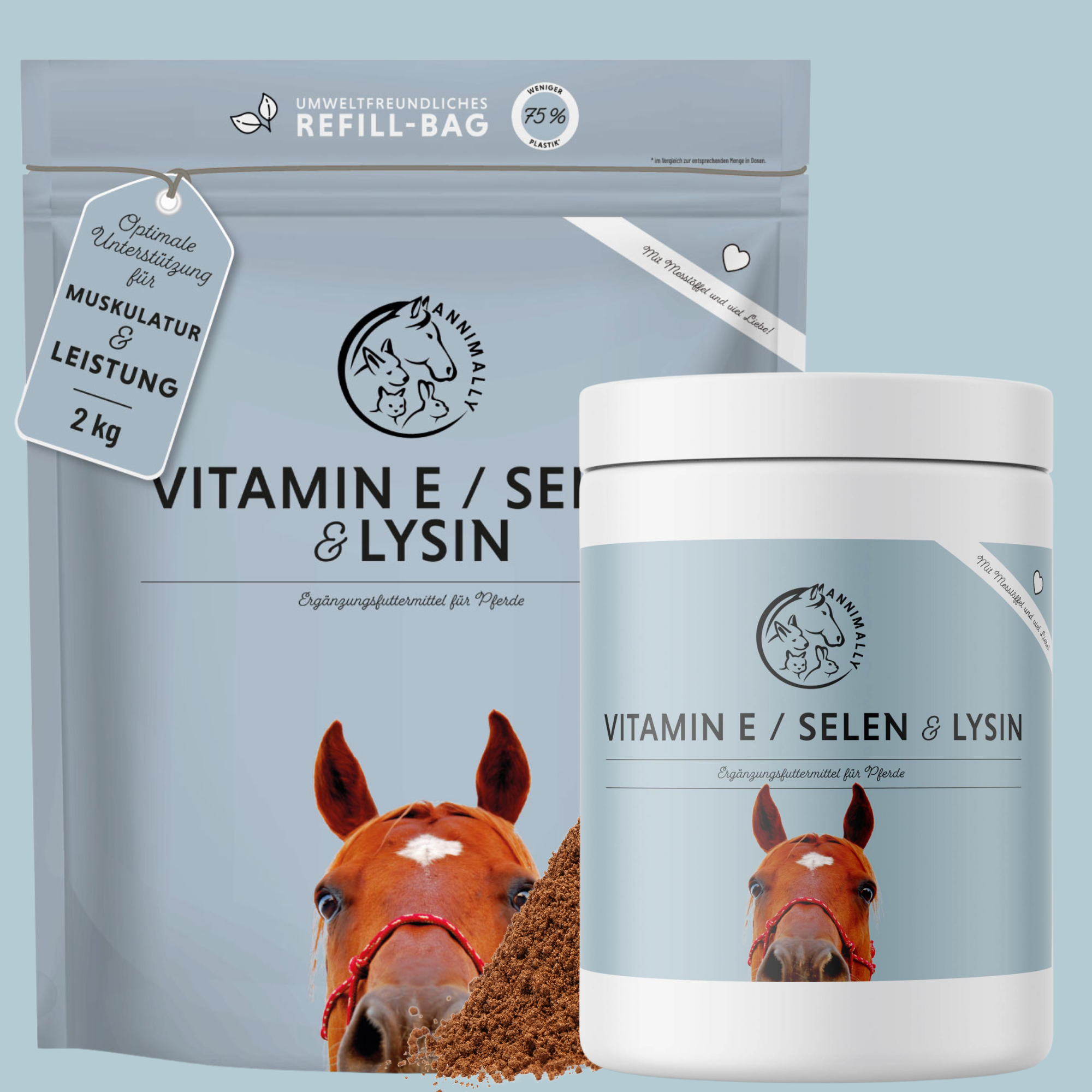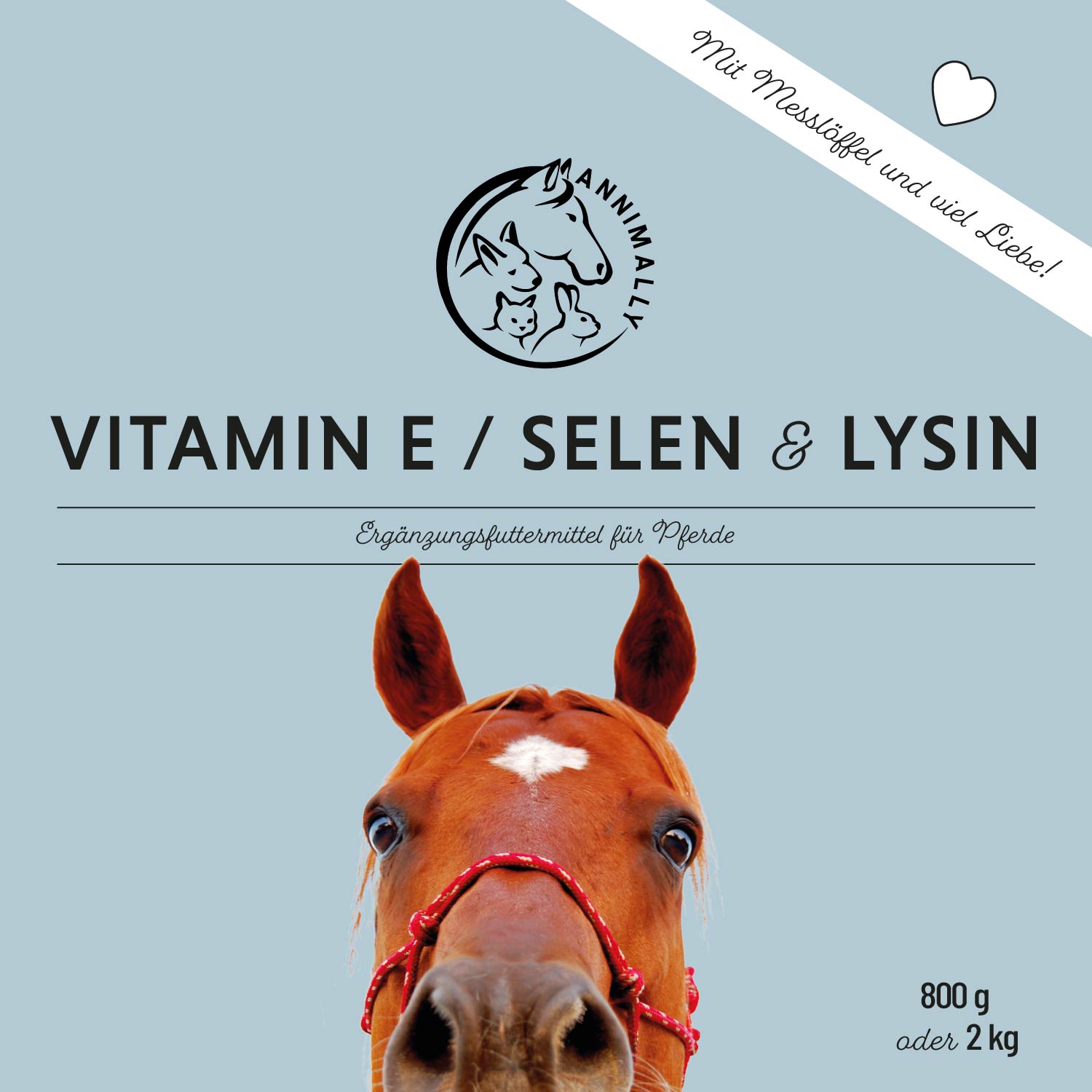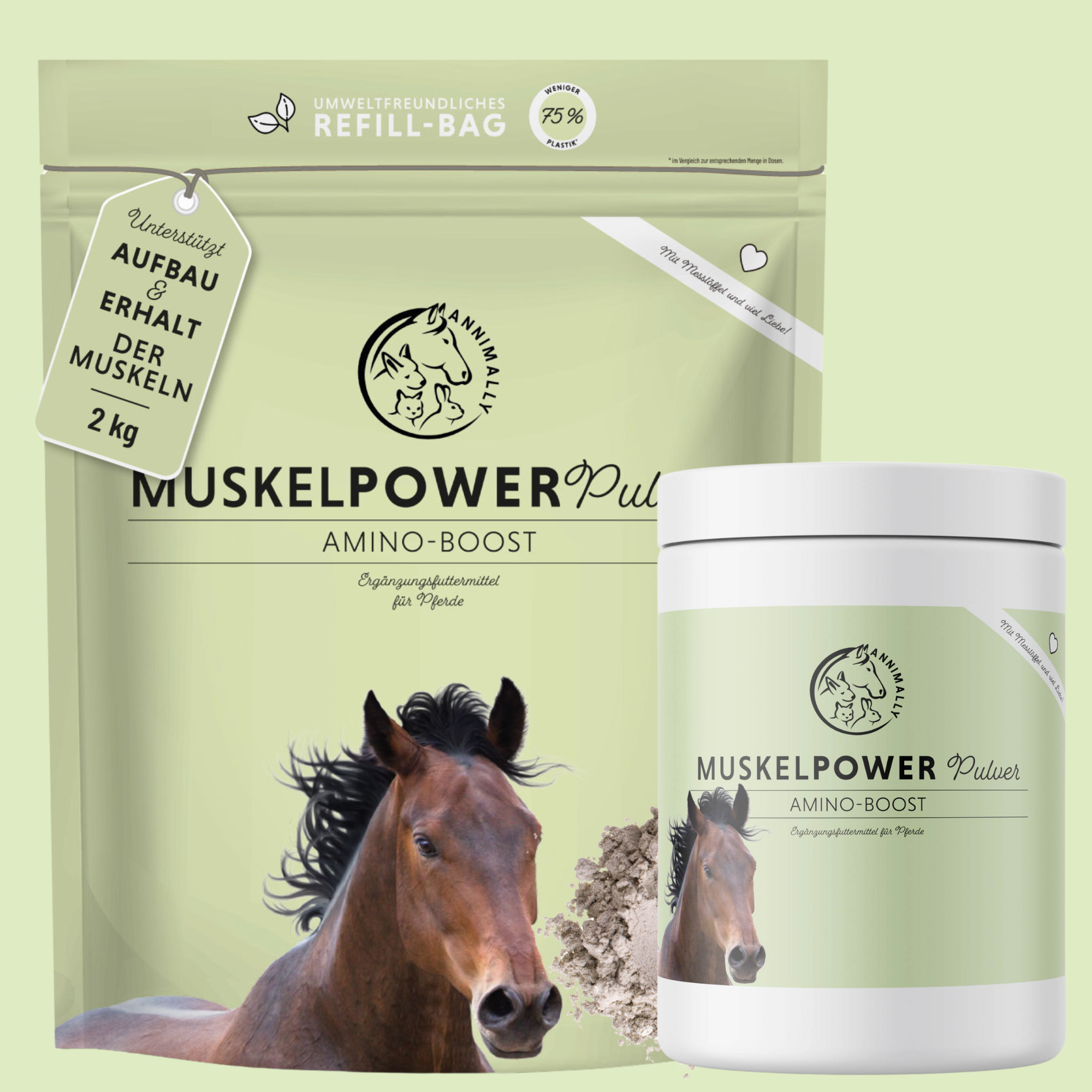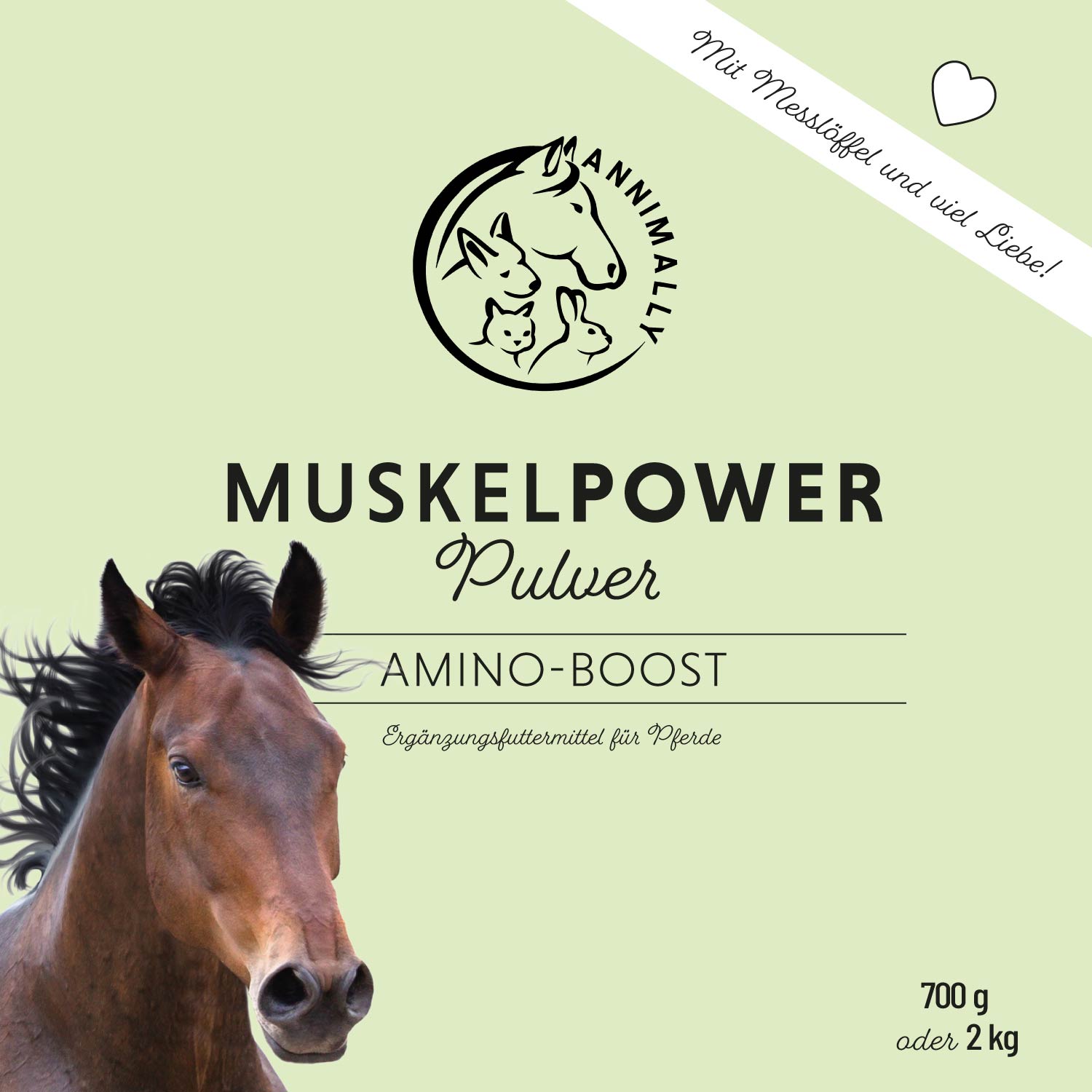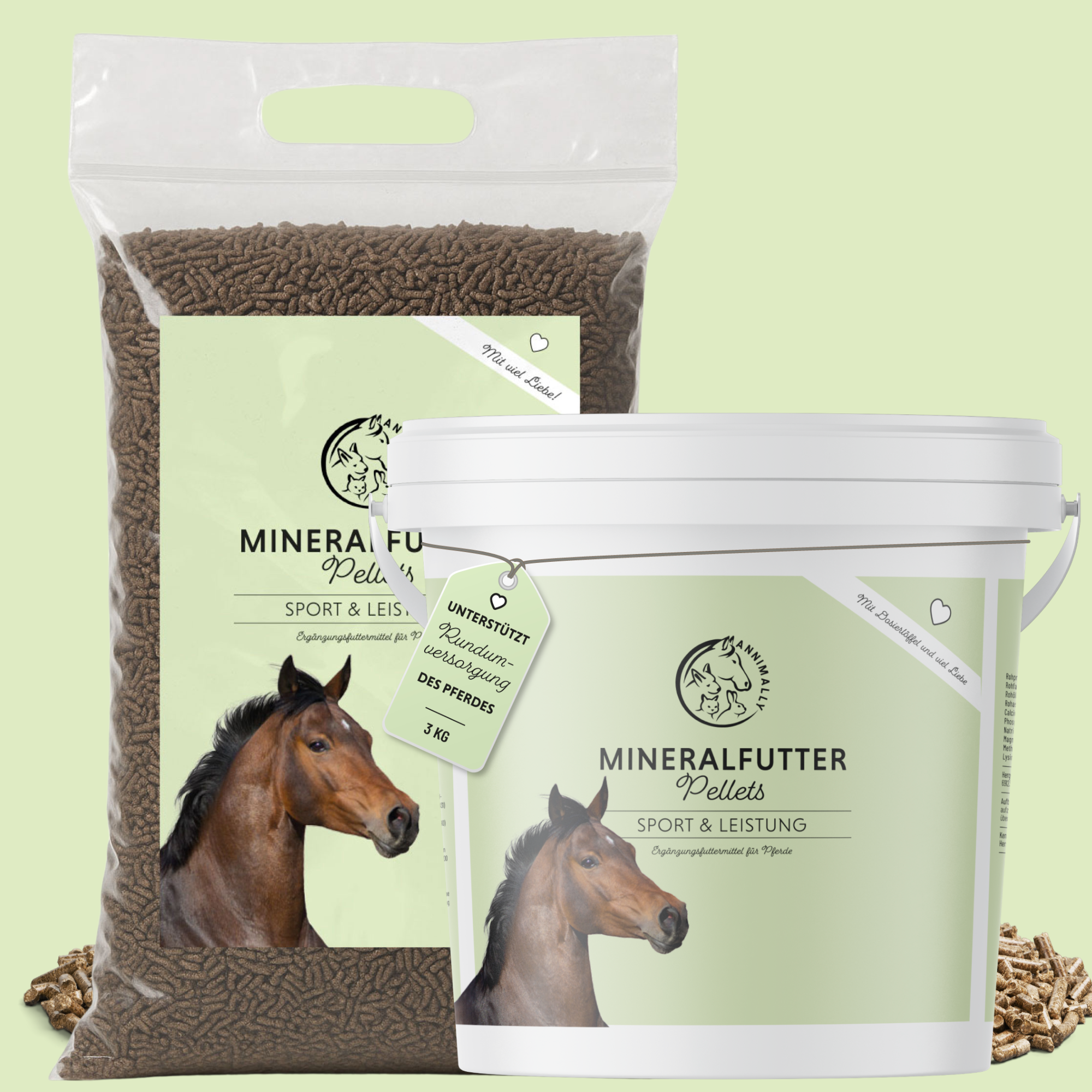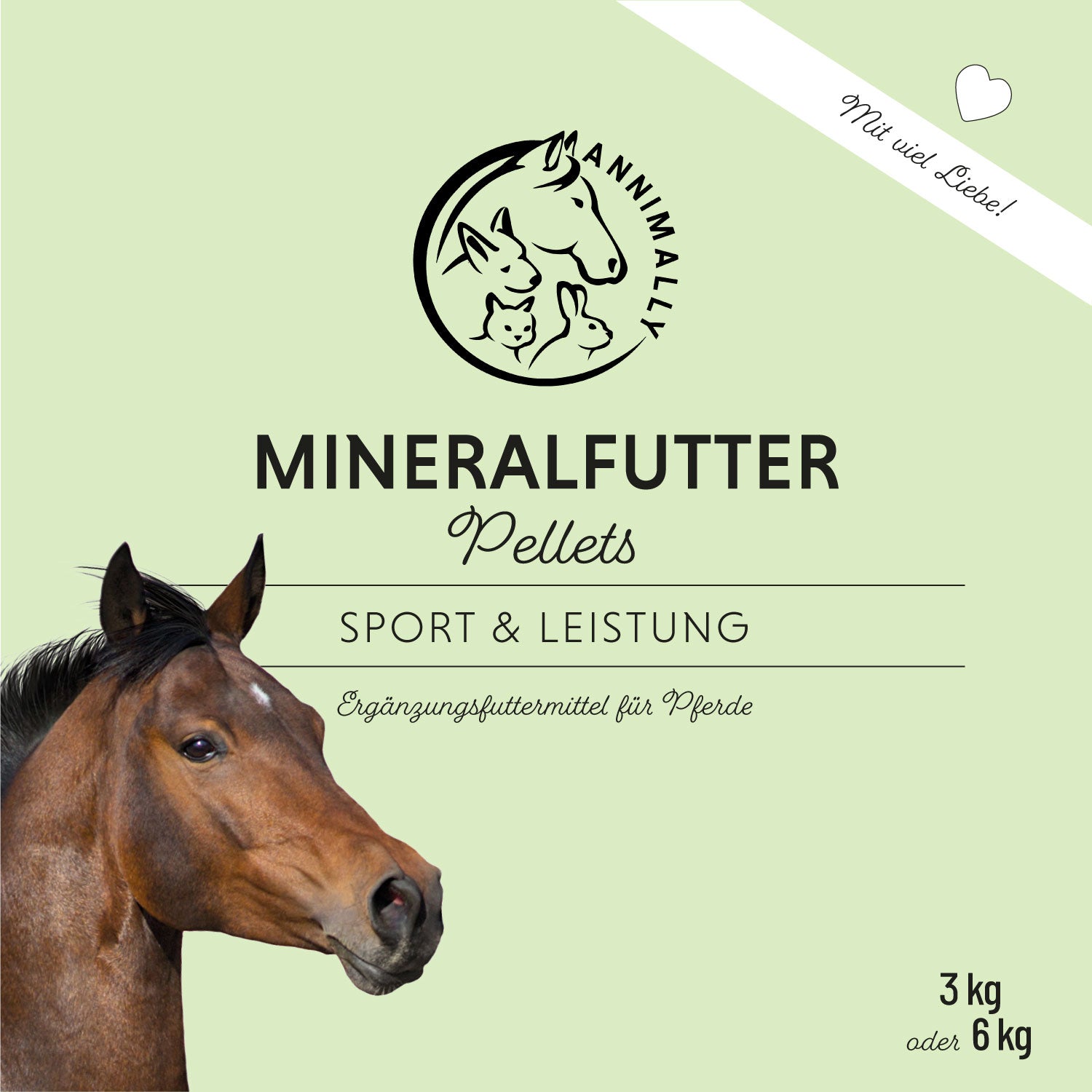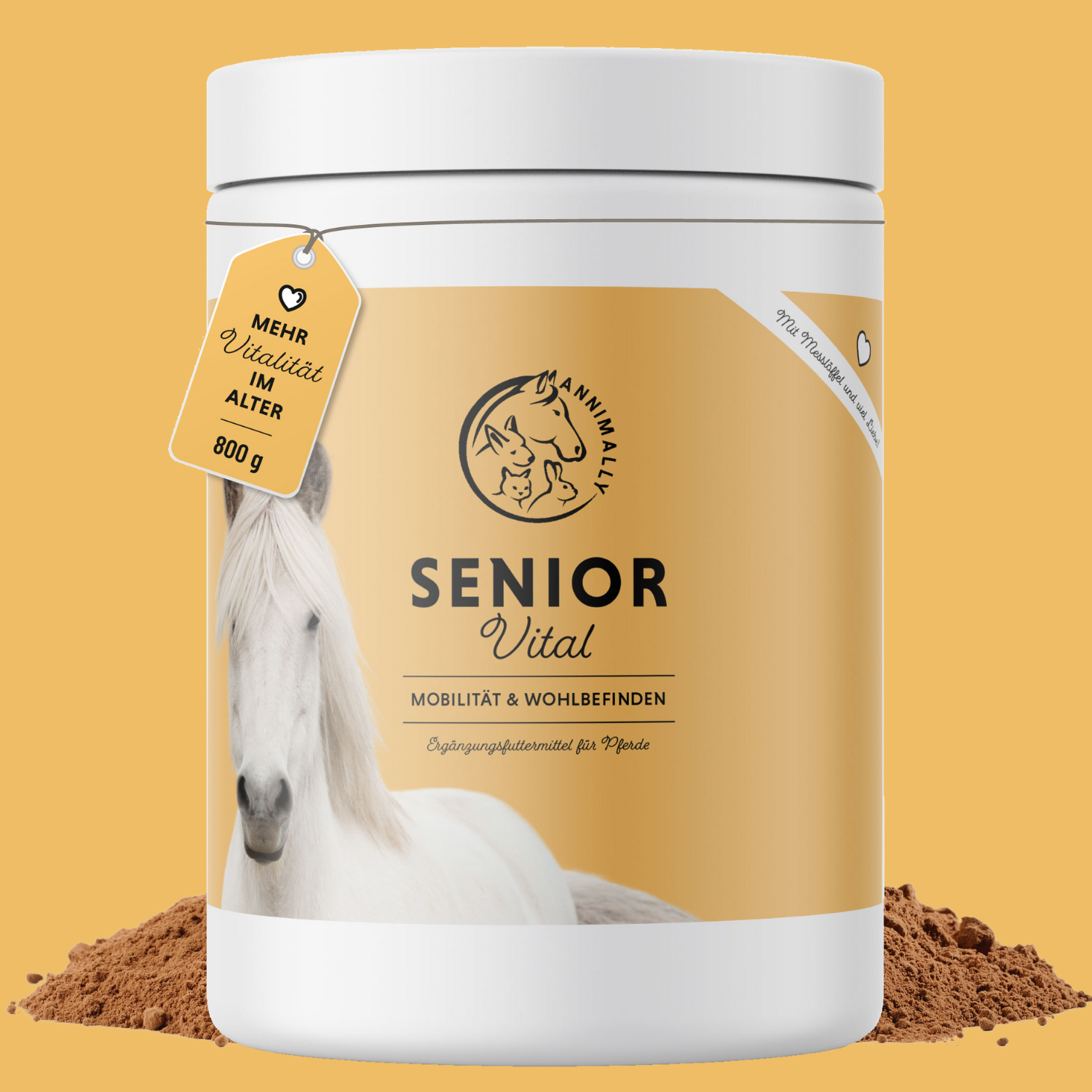Hyaluron for Horses: Everything You Need to Know
The health of your horse's joints is essential for its mobility, quality of life and performance. Horses are exposed to enormous stresses, especially in sports or daily training, which put a lot of strain on the joints. Have you heard of hyaluronic acid and how it can support the joint health of horses? In this comprehensive guide, you will learn what hyaluronic acid and hyaluronic acid are, how they work in the body and when a supplement can be useful in order to offer your horse the best possible care and support.

What is hyaluronic acid and why is it important?
Hyaluron, often referred to as hyaluronic acid, is a substance found naturally in the horse's body, particularly in joints, cartilage and skin. It is a long chain of molecules that can bind moisture. This water-binding property allows hyaluronic acid to act as a natural "lubricant" for the joints, as it strengthens the joint fluid, also known as synovial fluid.
This synovial fluid protects the cartilage surfaces from wear and tear and ensures that the joints move with little friction. Since horses are often subjected to high physical demands, support from hyaluronic acid or hyaluron can be a valuable aid in keeping their joints healthy and functioning.
How does hyaluronic acid work in your horse’s body?
The horse's joint contains synovial fluid, a thick substance that glides through the friction of the joints while protecting the cartilage. Hyaluronic acid is a major component of this fluid and ensures that the joint surfaces are well lubricated. When a horse has lower hyaluronic acid levels due to age or heavy use, the thickness of the synovial fluid is reduced, leading to more friction in the joint. This can cause pain, stiffness and inflammation.
Through the targeted administration of hyaluronic acid, your horse's body can replenish the synovial fluid and make it more supple. Hyaluronic acid supports the body in keeping the joints friction-free and thus prevents joint damage. In this way, hyaluronic acid can help to maintain your horse's mobility and enable him to live a pain-free life.
When should you consider hyaluronic acid for your horse?
There are several signs and situations in which hyaluronic acid could be beneficial for your horse:
-
Osteoarthritis and joint problems : If your horse already shows symptoms of joint disease or osteoarthritis , hyaluronic acid can relieve inflammation and improve joint mobility.
-
Older horses : With age, the production of hyaluronic acid decreases, making the joints stiffer and more susceptible to pain and wear. Here, hyaluronic acid can be an important support for joint health.
-
High sporting demands : Horses in competitions or during training are often exposed to enormous stress. Hyaluronic acid can have a preventive effect to prevent joint damage and increase the resilience of the joints.
-
After injuries : If your horse has had a joint injury, hyaluronic acid can be used as a supportive therapy to promote healing and make the joint stable again.
The administration methods of hyaluronic acid: feed additive or injection?
There are various ways to give your horse hyaluronic acid. The two most common methods are injections and feed supplements:
-
Injections : Hyaluron injections are administered directly into the joint or intravenously and work quickly. This method is particularly suitable for acute problems as it has a direct effect on the joint. However, the injection should only be carried out by a veterinarian as it carries a certain risk and must be administered specifically to the joint area.
-
Feed supplements : Administering hyaluronic acid as a feed supplement is a gentler and less invasive method. Although it takes longer to take full effect, it is excellent for supporting long-term joint health. Many horse owners prefer this method because it is simple and stress-free for the animal.
The choice between injection and feed supplement depends on your horse's health situation. While injections offer a quick effect for acute complaints, feed supplements are a good option for long-term care and prevention.
The Benefits of Hyaluron for Your Horse's Joint Health
Regular administration of hyaluronic acid can bring your horse significant benefits:
Pain relief : Hyaluronic acid can reduce pain caused by joint problems and friction in the joint due to its anti-inflammatory effect.
Improved mobility : Increased synovial fluid improves joint mobility, which can reduce stiffness and discomfort.
Preventive protection : Hyaluron protects the articular cartilage from excessive wear and slows the progression of joint damage.
Natural support without synthetic additives : Hyaluron is a substance produced naturally by the body and is therefore very well tolerated. The support is provided naturally and without the use of chemical additives.
Due to these advantages, hyaluronic acid contributes significantly to the long-term health and mobility of your horse and can enable him to live an active and pain-free life.
Side effects and risks: Is hyaluronic acid safe for your horse?
Most horses tolerate hyaluronic acid well. There are hardly any known side effects when given as a feed additive. Injections, on the other hand, can in rare cases lead to swelling, inflammation or, very rarely, allergic reactions. Since injections offer a targeted and rapid effect, but are also invasive, it is important that they are only carried out by a veterinarian.
Before using hyaluronic acid, speak to a veterinarian who will determine the correct dosage and form for your horse. This way you can ensure that the use of hyaluronic acid is safe and that your horse is optimally supported.
Hyaluron as part of the all-round care for your horse
Caring for the joints is only one part of comprehensive health care for your horse. In addition to hyaluronic acid, the right diet, sufficient exercise and good hoof care also play an important role in joint health. Rest periods and regular care sessions also help to keep your horse fit and efficient.
Hyaluron can be a valuable addition here, but it is important that joint care is always integrated into a holistic concept that is tailored to the specific needs of your horse.
Conclusion: Is Hyaluron the right choice for your horse?
Hyaluron can be a valuable support for your horse's joints, especially if it is under a lot of strain or is already showing signs of joint problems. Choosing the right method of administration and consulting a veterinarian are crucial to providing your horse with the best possible support.
By using hyaluronic acid, you help ensure that your horse remains healthy and mobile for a long time and can enjoy a high level of quality of life.

